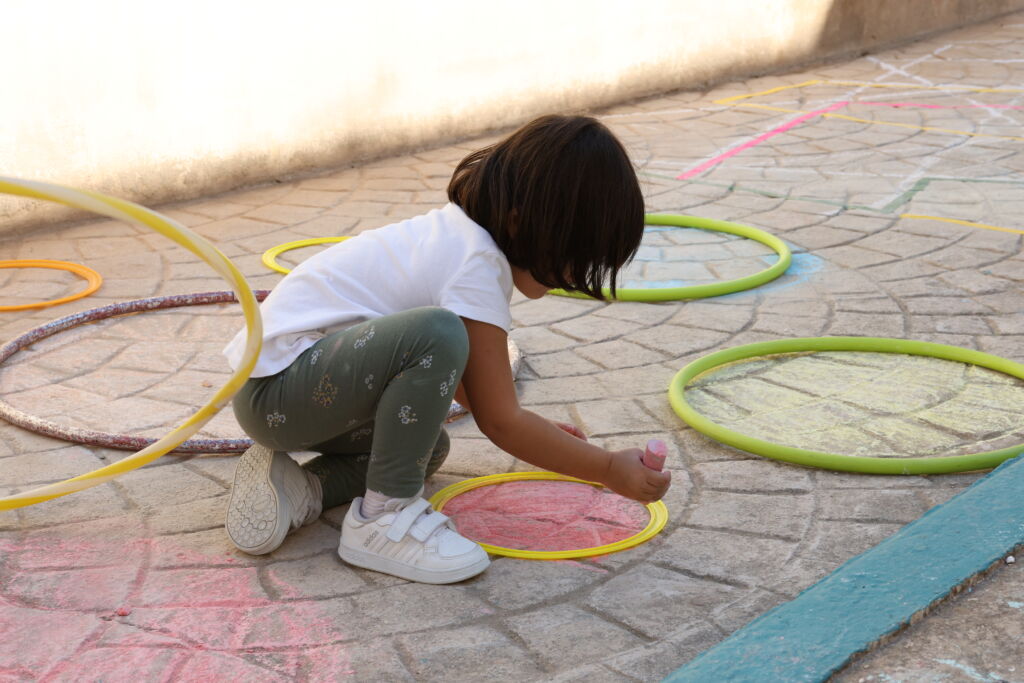
Children’s Participation at the Local Level
Over the last thirty years, the involvement of children has been widely recognized as a fundamental right. Children’s participation encompasses various dimensions of their engagement, with a strong connection to the Convention on the Rights of the Child, which firmly acknowledges this right.
What is ‘Children’s Participation’?
Children’s participation can be best described as the active engagement of children, either individually or in groups, in processes and opportunities where they can express their thoughts and ideas, directly influencing matters that concern them.
This shift of power from adults to children ensures that children are not passive recipients but active participants in decisions affecting their lives. To foster this at the local level, open and respectful dialogue and consultation between children and adults are essential. It is crucial that adults do not underestimate or merely pretend to respect children due to their age; they should also recognize the need for mutual respect. The level of dialogue and consultation should, of course, be tailored to the child’s age.
What is the ‘Local Government’?
Local government refers to an institution established through constitutional legislation or executive authority to carry out specific functions within defined geographic areas. Elected officials within local government work in the best interests of their local communities, with a legal obligation to create the necessary platforms that allow full participation of residents in decision-making. This practice fosters a stronger sense of civic engagement and community belonging.
Why should children participate ?
Children’s participation is pivotal for sustainable development, effective governance, and the cultivation of local democracy. Notably, Sustainable Development Goal 16 underscores the importance of these factors, emphasizing good governance, inclusivity, participation, and representation in decision-making.
From a rights perspective, there is a compelling argument for children’s participation in local governance. While children have a right to participate, it also paves the way for the realization of their other rights. Certain legislations mandate that all governing bodies ensure the involvement and participation of children in implementing and monitoring decisions, whether legislative or otherwise. Articles also underscore the significance of adolescents’ participation in shaping their own rights.
Practically, there are additional reasons for improving interaction between children and adults. At the local level, it is essential to establish well-structured spaces and channels of communication between both parties. These should not be created only when needed like upon an upcoming election, but should be an ongoing and integral part of daily life.
The importance of having a functioning model of participation is crucial not only for children but also for the adults who lead the local community. The information that can be obtained through participatory processes leads to the development of more sustainable projects, both in terms of financing and implementation.
It doesn’t make sense to invest large sums of money in a project that doesn’t cater to the diverse needs of children. Who better than the children themselves to understand what is required to provide suitable recreational opportunities for them? We shouldn’t merely ensure general participatory representation for children but also guarantee that children with different abilities or needs are included and involved. Not all children have the same needs or abilities. This underscores the critical principle of inclusivity. It’s important to remember that inclusivity cannot be achieved if we are not ready to ensure integration.
How Can We Involve Children?
Children should undoubtedly be engaged in everything that directly affects them or in which they may have an interest in the future.
For instance, discussions on environmental development should include children and their perspectives. In addition, children should be involved in conversations about community well-being, as they are integral members of these communities. Excluding children from discussions related to inclusion, diversity, culture, and integration is counterproductive. Engaging children in these discussions ensures that decisions made and desired for the future are better suited to the coming generations.
The local council’s role in all of this
Local councils play a central role in these efforts. They are obligated to establish the necessary platforms to facilitate meaningful dialogue. This dialogue should not be limited to addressing children’s rights but should also encompass local democracy and a bottom-up approach. As the closest authority to residents, local councils play a significant role as catalysts for children’s participation.
This engagement should not be pursued merely to fulfill a right; there should also be a strong conviction that children’s participation in decision-making and community development enhances the value of all our endeavours.
Mario Fava
President



